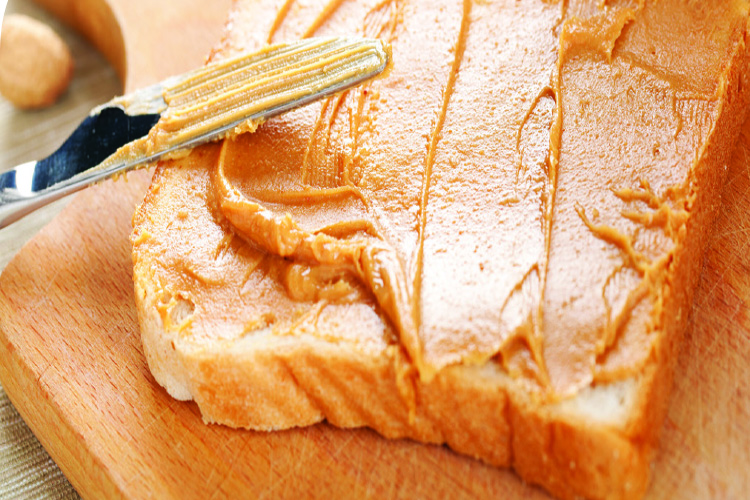Bad reputations tend to stick, even with foods. Continued negative press are enough reason for many of us to avoid them like the plague, without understanding or investigating more about them. Or we may even indulge on occasion, but with a measure of guilt. Well, you done have to anymore. Recent findings are slowly erasing the ‘sin’ taglines from them. Here are 10 of them. Enjoy without guilt.
Table of Contents
Chocolate
The bad rep
Chocolate has lots of fat, lots of sugar!
The good news
Dark chocolate contains flavanols, antioxidants that seem to have a blood-thinning effect, which can benefit cardiovascular health. You only need about 1.4 ounces of it every day for two weeks to reduce stress hormones, including cortisol, in highly stressed people. So far, researchers have found that flavanols in chocolate, improve blood vessel health, lower blood pressure and could even prevent cancer.
What’s more, studies are also showing that chocolate might fight – not cause – acne by improving skin’s hydration. So, choose chocolate that has at least 35 percent cocoa – though the higher the better. But remember that chocolate usually have lots of sugar and fat that can add extra calories you probably don’t need.
Coffee
The bad rep
Coffee can make you super-jittery, interfere with your sleep.
The good news
Studies show that compounds in coffee – caffeine – may reduce the risk of dementia, including Parkinson’s and Alzheimer’s, diabetes and liver cancer. Experts say certain antioxidants in coffee have a disease-fighting effect, while caffeine may play a role in protecting the brain. To reap the most benefits without becoming dehydrated drinking 2 to 4 (8-ounce) cups a day is sufficient. If you’re expecting or nursing, you should limit caffeine intake to no more than two cups a day.
Eggs
The bad rep
High in dietary cholesterol – no place in a heart-healthy diet.
The good news
Eggs contain a variety of substances that appear to promote good health. It is one of the richest food sources of choline – a nutrient that is critical to brain function. Medical experts now emphasise that saturated fats and trans fats are bigger culprits in raising blood cholesterol than dietary cholesterol.
Moreover, egg yolks contain lutein and zeaxanthin, compounds that research links with reduced risk for age-related macular degeneration (AMD), the leading cause of blindness in people over 50. Eggs are inexpensive, contain the highest-quality protein on the planet, and are loaded with small amounts of vital nutrients, including folate, riboflavin, selenium, and B12.
Avocado
The bad rep
Avocados are high in fat.
The good news
It’s true that avocados are high in fat – one reason they’ve earned the nickname “butter pear.” A medium-sized avocado contains 30 grams of fat, as much as a quarter-pound burger. That’s why dieters have been long urged to go easy on avocados. But now nutritionists are taking another look. They’re finding that most of the fat in an avocado is monounsaturated – the “good” kind that actually lowers cholesterol levels.
Studies also found that avocados are loaded with a variety of antioxidants, including familiar disease-fighting compounds such as lutein, beta-carotene, and vitamin E, and cancer- preventing compounds. So the next time, instead of spreading butter or cream cheese on your bread, use some mashed avocado instead.
Coconut
The bad rep
High in saturated fat that might clog your arteries.
The good news
Even though coconut is packed with saturated fat, it appears to have a beneficial effect on heart-disease risk factors. This is because more than 50 percent of coconut’s saturated-fat content is lauric acid. A recent analysis of 60 studies published in the American Journal of Clinical Nutrition reports that even though lauric acid raises LDL (bad) cholesterol, it boosts HDL (good) cholesterol even more. Overall, this means it decreases your risk of cardiovascular disease. The rest of the saturated fat is almost entirely composed of “medium-chain” fatty acids, which have little or no effect on cholesterol levels.
Peanut Butter
The bad rep
Peanut butter is super-fattening.
The good news
One serving (about 2 tablespoons) is all you need to load up on heart-healthy monounsaturated fats, which can lower cholesterol and help keep heart disease at bay. Choose “natural” peanut butters, since they contain no added artificially hydrogenated oils (trans fats) like many of the standard versions.
Check the ingredient list: The only two things on the list should be ground peanuts and maybe a little salt. Spread some on toast and you’ll also be sneaking some vitamin E, folic acid, potassium, protein, zinc, fibre and magnesium into your diet.
Cheese
The bad rep
Cheese is high in fat and calories.
The good news
Yes, many cheeses can be high in fat, calories, and salt, which is why it’s been maligned, but there are low-fat options that can help you reach your daily calcium requirement of 1,000 mg (an ounce of cheese contains a third of that amount). Plus, cheese contains conjugated linoleic acid, a “good” fat that may reduce your risk of cancer, heart disease, and diabetes. And this acid may help you lose weight by blocking the storage of fat in your body.
Bread
The bad rep
Bread is loaded with carbs.
The good news
Bread isn’t bad – eating too many refined grains is. Dieticians recommend at least half of the grains you consume to be whole grains. Switching to 100% whole-wheat bread, or other whole-grain breads, is one way to do that. Keep out of your diet bread made from white, refined and bleached flour. This type of breads are ranked high on the glycemic index and will promote the oversecretion of insulin.
In a nutshell, excess insulin is excess fat. When selecting bread for weight loss, the key is making sure you are selecting high-quality bread that is filled with fibre, minerals and vitamins and is low on the glycemic index.
Mushroom
The bad rep
Mushrooms are a low-calorie food with little nutritional benefit.
The good news
Mushroom may be 90 percent water and have only 18 calories per cup, but mushrooms are getting serious scientific attention. Laboratory reports and animal studies show that compounds in mushrooms may do everything from bolster immune function to suppress breast and prostate cancers to decrease tumour size.
And now, researchers have found that mushrooms, from the humble button to the giant portobello, harbour large amounts of an antioxidant called L-ergothioneine – something only available in fungi for the moment. Scientists also say mushrooms also offer a healthy helping of potassium – the blood pressure lowering mineral. In fact it may be surprising to hear that one medium portobello mushroom or five white button mushroom actually have more potassium than an orange.
Potatoes
The bad rep
Potatoes rank high on the glycemic index – food that is quick to raise your blood sugar.
The good news
Potatoes are a good source of fibre, potassium and vitamin C. And unless you’re eating an absolutely plain potato all by itself, its GI value doesn’t matter. Sadly, most people eat potatoes in the form of greasy French fries or potato chips, and even baked potatoes are typically loaded down with fats such as butter, sour cream, and melted cheese. Such treatment can make even baked potatoes a potential contributor to a heart attack. But take away the extra fat and deep frying, and a baked potato is an exceptionally healthful low calorie, high fibre food that offers significant protection against cardiovascular disease and cancer.
Potatoes is a very good source of vitamin C, vitamin B6, copper, potassium, and manganese. Potatoes also contain a variety of phytonutrients that have antioxidant activity. Among these important health-promoting compounds are carotenoids, flavonoids, and caffeic acid, as well as unique tuber storage proteins, such as patatin, which exhibit activity against free radicals.
















